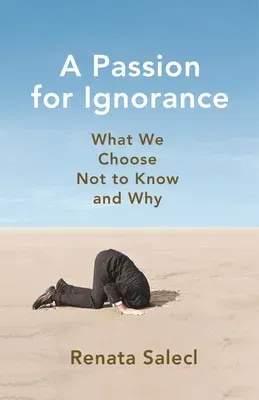An original and provocative exploration of our capacity to ignore what
is inconvenient or traumatic
Ignorance, whether passive or active, conscious or unconscious, has
always been a part of the human condition, Renata Salecl argues. What
has changed in our post-truth, postindustrial world is that we often
feel overwhelmed by the constant flood of information and
misinformation. It sometimes seems impossible to differentiate between
truth and falsehood and, as a result, there has been a backlash against
the idea of expertise, and a rise in the number of people actively
choosing not to know. The dangers of this are obvious, but Salecl
challenges our assumptions, arguing that there may also be a positive
side to ignorance, and that by addressing the role of ignorance in
society, we may also be able to reclaim the role of knowledge.
Drawing on philosophy, social and psychoanalytic theory, popular
culture, and her own experience, Salecl explores how the passion for
ignorance plays out in many different aspects of life today, from love,
illness, trauma, and the fear of failure to genetics, forensic science,
big data, and the incel movement--and she concludes that ignorance is a
complex phenomenon that can, on occasion, benefit individuals and
society as a whole.
The result is a fascinating investigation of how the knowledge economy
became an ignorance economy, what it means for us, and what it tells us
about the world today.

